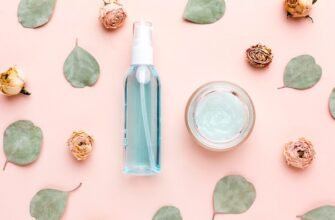Dealing with acne-prone skin can be frustrating, especially when trying to find a moisturizer that doesn’t aggravate breakouts. While it may be tempting to skip this step in your skincare routine, moisturizing is essential to keeping the skin healthy and balanced. The key is finding the perfect moisturizer for your acne-prone skin.
Understanding Acne-Prone Skin
Acne-prone skin is characterized by a tendency to develop pimples, blackheads, and whiteheads due to the overproduction of sebum, which is the oil produced by the skin. When sebum mixes with dead skin cells and bacteria, it can clog pores and cause acne. Acne can also be triggered by hormonal changes, stress, and certain medications or cosmetics.
The Importance of Moisturizing Acne-Prone Skin
Many people with acne-prone skin avoid moisturizing, fearing that it will worsen breakouts. However, skipping moisturizing can actually lead to more breakouts, as the skin may produce even more oil in response to dryness. Moisturizing is necessary to keep the skin hydrated and healthy, which can improve the overall appearance and texture of the skin.
What to Look for in a Moisturizer for Acne-Prone Skin
When shopping for a moisturizer for acne-prone skin, look for products that are labeled “oil-free,” “non-comedogenic,” or “lightweight.” These products are designed to hydrate the skin without clogging pores or causing breakouts. Ingredients like hyaluronic acid, glycerin, and ceramides can help to hydrate the skin while improving its barrier function.
Ingredients to Avoid in Moisturizers for Acne-Prone Skin
While some ingredients can help to hydrate the skin, others can exacerbate acne-prone skin. When shopping for a moisturizer, avoid products that contain:
- Mineral oil
- Petrolatum
- Shea butter
- Cocoa butter
- Coconut oil
- Fragrance
- Alcohol
These ingredients can clog pores and cause breakouts, or irritate the skin and cause inflammation.
Tips for Moisturizing Acne-Prone Skin
In addition to choosing the right moisturizer, there are some tips that can help you get the most out of your moisturizing routine:
- Apply moisturizer to clean, dry skin
- Use a gentle, non-abrasive cleanser
- Pat your skin dry with a clean towel
- Avoid touching your face as much as possible
- Don’t over-wash your face, as this can strip the skin of its natural oils
- Apply moisturizer twice a day, once in the morning and once at night
FAQs
Q: Can I use a moisturizer with SPF if I have acne-prone skin?
A: Yes, you can use a moisturizer with SPF if you have acne-prone skin. Look for products that are labeled “non-comedogenic” and avoid products that contain fragrances or oils.
Q: Should I use a heavier moisturizer at night?
A: It’s not necessary to use a heavier moisturizer at night, but if your skin feels dry or tight, you can use a richer moisturizer to help hydrate your skin while you sleep.
Q: Can I use a facial oil instead of a moisturizer?
A: It’s best to use a moisturizer that is specifically designed for acne-prone skin, as many facial oils can clog pores and cause breakouts. However, if you choose to use a facial oil, look for products that are lightweight and non-comedogenic.
Q: Can I skip moisturizer if I’m using an acne treatment?
A: No, it’s important to moisturize even if you’re using an acne treatment, as these products can be drying to the skin. Apply your moisturizer after your acne treatment has absorbed into the skin.
Q: Can I use a moisturizer with salicylic acid?
A: Yes, a moisturizer with salicylic acid can be effective for treating acne-prone skin. Salicylic acid can help to exfoliate the skin and reduce inflammation, but it’s important to use it in moderation to avoid over-drying the skin.
Conclusion
Maintaining a skincare routine for acne-prone skin can be challenging, but finding the perfect moisturizer can make all the difference. Look for products that are oil-free, non-comedogenic, and lightweight, and avoid ingredients that can clog pores or irritate the skin. With the right moisturizer and a consistent skincare routine, you can keep your skin healthy and breakout-free.

















































